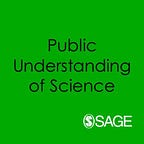Climate Change Isn’t Everything — Liberating Climate Politics From Alarmism
Review by Julia Schubert
Climatism, as Hulme calls this ideology, “is the settled belief” that anthropogenic climate change is “the dominant explanation of all social, economic and ecological phenomena”.
Human geographer Mike Hulme presents a bold and timely argument against an increasing reductionism in current climate communication. Published during what has been declared the hottest year on record, this book certainly comes with a provocative title. But Hulme skillfully shows what is at stake here. He defends the many meanings of climate change against the dangers of reducing our political vision to globally averaged temperatures. Hulme has been committed to unpacking the scientific, social and cultural meanings of climatic change for more than four decades. This book is a much-anticipated expansion of his essential work on climate reductionism over the past decade, making this important line of argument accessible to a wider readership.
Building on the notion of climatisation, Hulme suggests that a radicalised tendency to “blame everything on climate” has taken hold in recent years and emerged as “a fully fledged ideology”. Climatism, as Hulme calls this ideology, “is the settled belief” that anthropogenic climate change is “the dominant explanation of all social, economic and ecological phenomena”.
Chapters 1 to 3 define central features of this ideology and trace the roots and reasons for its emergence. This first part of the book focuses on the complicated role of climate science in advancing an “ever narrower” understanding of climate change. Hulme highlights ten developments, which provide “the epistemic scaffold” of climatism. This account stands out as Hulme manages to place the dynamic relation between science and politics front and centre. Rather than pointing fingers at the concerted agenda of a distinct group of scientists or policymakers, Hulme draws our attention to the contingency of scientific concepts and their relation to political agendas, measures and individual organisations.
Chapters 4 to 6 explore how the totalising ideology of climatism works. These chapters turn to the psycho-social premises (the ‘allure’) of this ideology and shed light on potentially dangerous consequences. Climatism, Hulme observes, “offers a master-narrative which brings clarity and simplicity to a complex world”, it “rests on ‘special knowledge’ drawn from the sciences and social sciences”. He discusses how this perspective leads to “a dangerously myopic view” of complex societal and ecological challenges which might result in poor and anti-democratic decision-making.
Finally, Hulme offers five “antidotes” to climatist ideology. In this second part of the book, he demonstrates what it means to say that climate change is not a singular problem waiting for a singular solution, but instead gains its significance through a variety of socially, politically, or geographically localised perspectives.
Hulme’s brilliant little book reminds us that the current challenge of climate politics is not denialism but scientism. In doing so, it joins a critical line of inquiry within the social studies of science that has questioned the increasing reliance of climate politics on scientific expertise. Addressing climate change hardly builds on mere ‘fact-making’, as Sheila Jasanoff and others have pointed out, but concerns ‘sense-making’. This line of work has emphasised the ‘wicked’ nature of climate change and argued for the foregrounding not only of scientific uncertainty, but also of ‘the human dimension’ of climate change (Grundmann 2016; Heymann 2019).
Building on this work, Hulme argues here against the allure of clear-cut solutions and definite goals with regard to a changing climate. He invites us to understand and mobilise ambiguity not as enemy, but as resource: only by attending to the “difficult political work” of appreciating necessarily varied, even conflicting interests, can we shape meaningful policy.
As convincing as Hulme’s overall argument is, his conceptual choice and use of the notion of ‘ideology’ in this context is less so. As a sociologist of science, I read this conceptual decision as an invitation to methodological symmetry: to describe the radicalised tendency of climate reductionism as ‘ideology’ means placing ‘doomists’ next to ‘denialists’ and ‘delayers’. The notion of ideology works as a provocation here, warning of the “tinted spectacles” of those announcing ever shorter timescales and scarcer perspectives. But by so doing, Hulme caters to what he himself convincingly presents as counterproductive “moral sorting”.
What is to be learned from the story of this book is precisely not that we need to confront a “powerful cabal defending entrenched political power” but rather, that we need to be careful what we wish for from science. At its heart, this book tells a story of the use and misuse of science. It shows how political expectations might sometimes work to distort scientific integrity, lead to unintended consequences and a narrowing of political vision.
References
Grundmann R (2016). Climate Change as a Wicked Social Problem. Nature Geoscience, 9(8), 562–563.
Heymann M (2019). The Climate Change Dilemma: Big Science, the Globalizing of Climate and the Loss of the Human Scale. Regional Environmental Change, 19, 1549–1560.
Julia Schubert is a postdoctoral researcher at Goethe University Frankfurt exploring how scientific efforts to understand a changing climate are intertwined with political ambitions to govern this change. She is the author of Engineering the Climate — Science, Politics and Visions of Control (Mattering Press 2021) and ‘Science-State Alliances and Climate Engineering — a ‘Longue Durée’ Picture’, Wiley Interdisciplinary Reviews: Climate Change, 13, 6 (2022).
